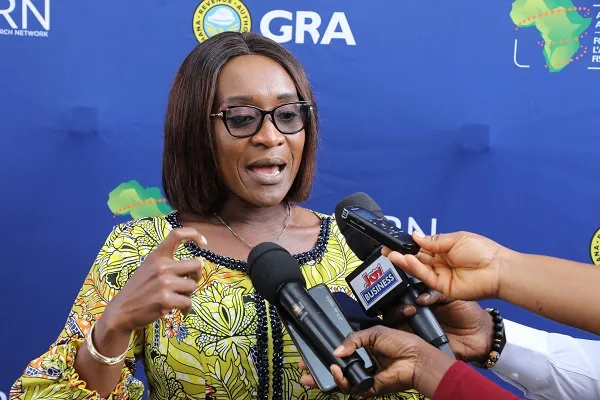Government has reiterated its commitment to accelerating the growth of small and medium enterprises (SMEs) through its SME Growth and Opportunity (SME-GO) programme.
The initiative seeks to strengthen the sector by providing critical financial and technical support.
At a stakeholder sensitisation event held in Accra, Minister of State Abena Osei-Asare emphasised government’s dedication to fulfilling its promise of bolstering the SME sector, which is widely regarded as the Ghanaian economy’s backbone.
This event marked the national sensitisation tour’s conclusion, brought together key government officials, development partners and SME representatives.
According to Ms. Osei-Asare, the SME-GO programme is set to address the numerous challenges SMEs face – including limited access to finance, inadequate technical support and lack of capacity-building opportunities. Over the past few weeks, the programme has engaged 3,250 SMEs from all 16 regions; educating them on how to access the available support and resources.
“We have fulfilled our promise to move into ‘execution mode’ by engaging SMEs across the country. Today, we conclude this phase in Greater Accra with the assurance that we will continue to listen, engage and provide the needed support to ensure this vital sector’s growth,” Ms Osei-Asare noted.
She further explained that the SME-GO programme – in partnership with Development Bank Ghana, Ghana EXIM Bank, Ghana Enterprises Agency (GEA) and other key institutions – has been strategically designed to empower SMEs in driving innovation, creating jobs and contributing to the country’s economic transformation.
“We are speeding up and scaling up support for businesses,” Ms. Osei-Asare said.
She also highlighted the importance of SMEs in sustaining Ghana’s economic recovery, noting that the sector’s growth is crucial to maintaining the country’s improving fiscal position.
In recent months, Ghana’s economic indicators have shown signs of recovery. The minister pointed out that growth in second quarter-2024 averaged 6.9 percent, driven primarily by the industrial sector. Additionally, inflation – which had surged to 54 percent in December 2022 – has been reduced to 20.4 percent as of August 2024; well within government’s target for the year.
“Our fiscal position has significantly improved and we are broadly on course to record a positive primary balance at 0.5 percent of GDP in 2024. The surest way to sustain this macroeconomic stability is to bolster SMEs, which are the lifeblood of our local economies,” she added.
Government’s renewed focus on SMEs is not only driven by the need for economic stability but also recognition that the sector holds enormous potential for job creation and innovation.
“The decentralised engagements across all regions have confirmed the prudence of our renewed focus on SMEs. These businesses are the backbone of regional and local economies; and with targetted interventions their potential to anchor economic recovery and transformation is undeniable,” the minister explained.
Beyond government support, the SME-GO programme has attracted significant international backing. The initiative has secured GH¢700million from government to support the Ghana Enterprises Agency and Ghana EXIM Bank.
Additionally, Development Bank Ghana is committing approximately GH¢1.2billion while the International Finance Corporation (IFC) of the World Bank has pledged US$400million. The African Development Bank has also contributed US$40million.
The collaboration between public and private institutions, Osei-Asare noted, is key to creating a stronger ecosystem for SMEs.
Source: thebftonline.com

